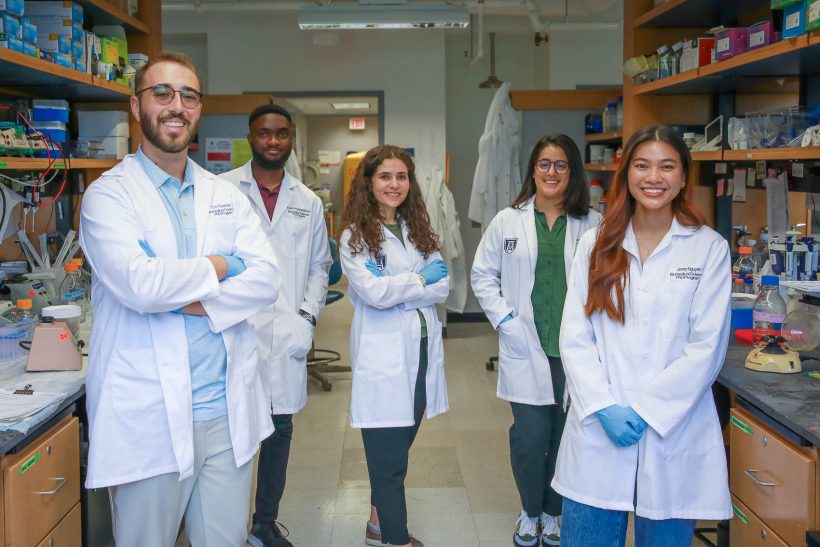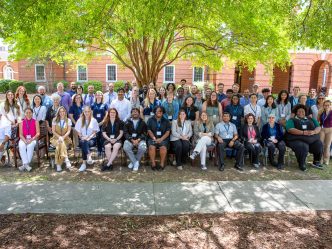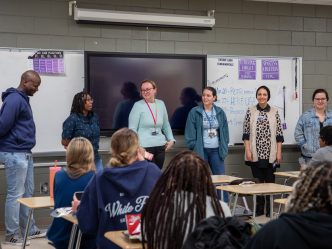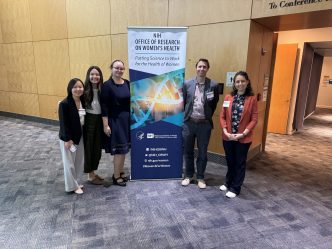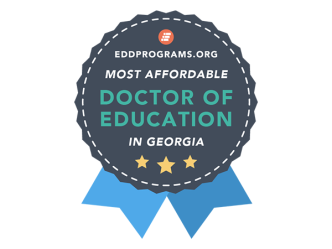Introducing the Biomed Lab League—a talented group of second-year PhD students studying Biomedical Sciences at Augusta University, selected for their academic excellence, research potential, and dedication to advancing human health. With mentors chosen, labs joined, and majors declared, they’ve officially embarked on the next chapter of their scientific journey. This series will follow their progress from early experiments to dissertation defense, capturing the challenges, breakthroughs, and personal growth that define the PhD experience.
Their research spans diverse fields—from cancer immunotherapy to neuroplasticity—but they’re united by a shared passion for discovery and a drive to make a meaningful impact. We sat down with these rising scientists to learn what fuels their work, how they stay motivated, and what sets Augusta University’s programs apart.
TGS: What inspired you to join one of our Biomedical Sciences PhD programs, and how did you choose your specific research focus?
Dariana Rodríguez: After earning a master’s in biology, I worked as a college instructor for a few years before deciding to pursue a PhD. I wanted to have the opportunity to have a deeper impact on others. I specifically chose Biomedical Sciences over other doctoral programs because it ties my appreciation for scientific research with my admiration for academia, and this degree will allow me to pursue a career as both an educator and researcher in Biomedical Science. I was really attracted to Cellular Biology & Anatomy’s opportunities for their graduate students to develop their teaching pedagogy while also pursuing their research. I joined Dr. Paul Langridge’s lab, which focuses on cell-cell communication using Drosophila processes, which are vital for life. The pivotal questions we are asking about the mechanisms governing Notch receptor signaling impact many processes in multicellular organisms. The significance of the work and hands-on technical skills I will be learning are some of the reasons I chose this research lab.
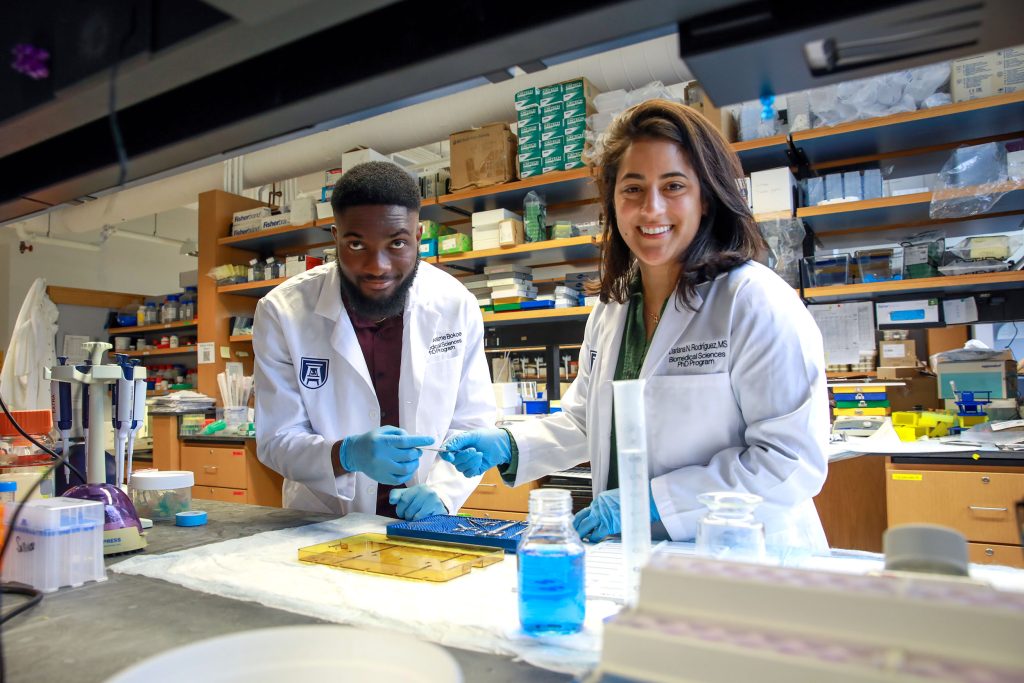
TGS: Can you describe your current research project and why it matters in the broader context of human health or disease?
Edem Bokoe: My project focuses on characterizing genes that enhance therapeutic T cell function and improve CAR-T-cell efficacy. This research matters because while CAR-T therapy has shown remarkable success in some cancers, its effectiveness is often limited by poor persistence, exhaustion, or tumor resistance. By identifying and understanding key genes that boost T-cell performance, this work could lead to more durable and broadly effective immunotherapies for cancer and other diseases.
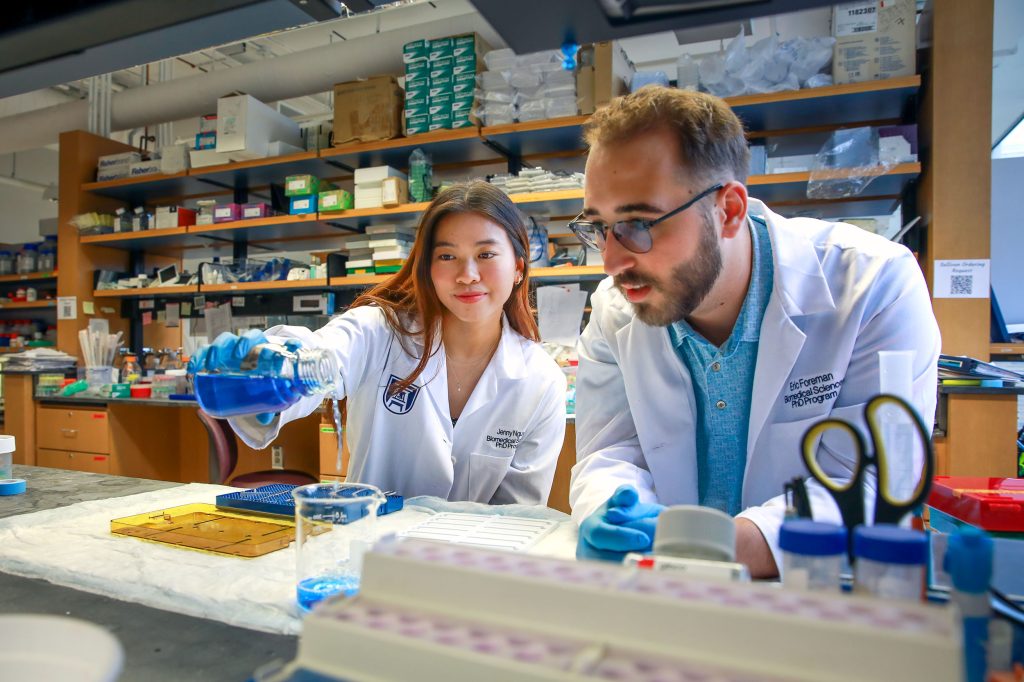
TGS: How do you stay motivated during the inevitable challenges of graduate research?
Eric Foreman: I make an effort to do something devoid of science each and every day. Don’t get me wrong, I enjoy my job and the work I’m doing in the lab, but I believe that keeping my work life and my personal life separate helps me recharge when I’m home. Often, my fiancé and I will pick out a new movie to watch or we will play a video game. We also tend to eat dinner outside when the weather is nice. I try to avoid spending time on my computer when I’m home, as the majority of my current work is in-silico and it’s easy to get overwhelmed or burnt out. Like most graduate students (who are experts in procrastination), when a big deadline is near, I’ll inevitably work more and when that deadline passes, I make a concerted effort to spend time working on my own passion projects (screenwriting, game development, etc.). Remember that there will always be work to do, but also remember that we only live once.
TGS: What’s one funny or memorable experience you’ve had during your graduate studies?
Jenny Nguyen: The senior graduate student in my lab introduced the rest of the lab to a soft pretzel food truck. It is absolutely the best soft pretzel we’ve ever had, and we immediately became hooked! Now we watch their Instagram page to see when the pretzel truck will be coming, send calendar invites, and then walk to get some pretzels. The employees are now on a first name basis with some of us!
TGS: What do you think sets Augusta University’s Biomedical Sciences PhD programs apart from others?
Cassandra Slocum: I think what sets AU’s programs apart is the way they combine world-class research opportunities with an exceptionally supportive and collaborative community. Students don’t just have access to cutting-edge science and translational research through the Medical College of Georgia and a major hospital; they are also surrounded by peers and mentors who are deeply committed to one another’s success. This unique environment of innovation and encouragement creates the ideal setting for both scientific discovery and personal growth.
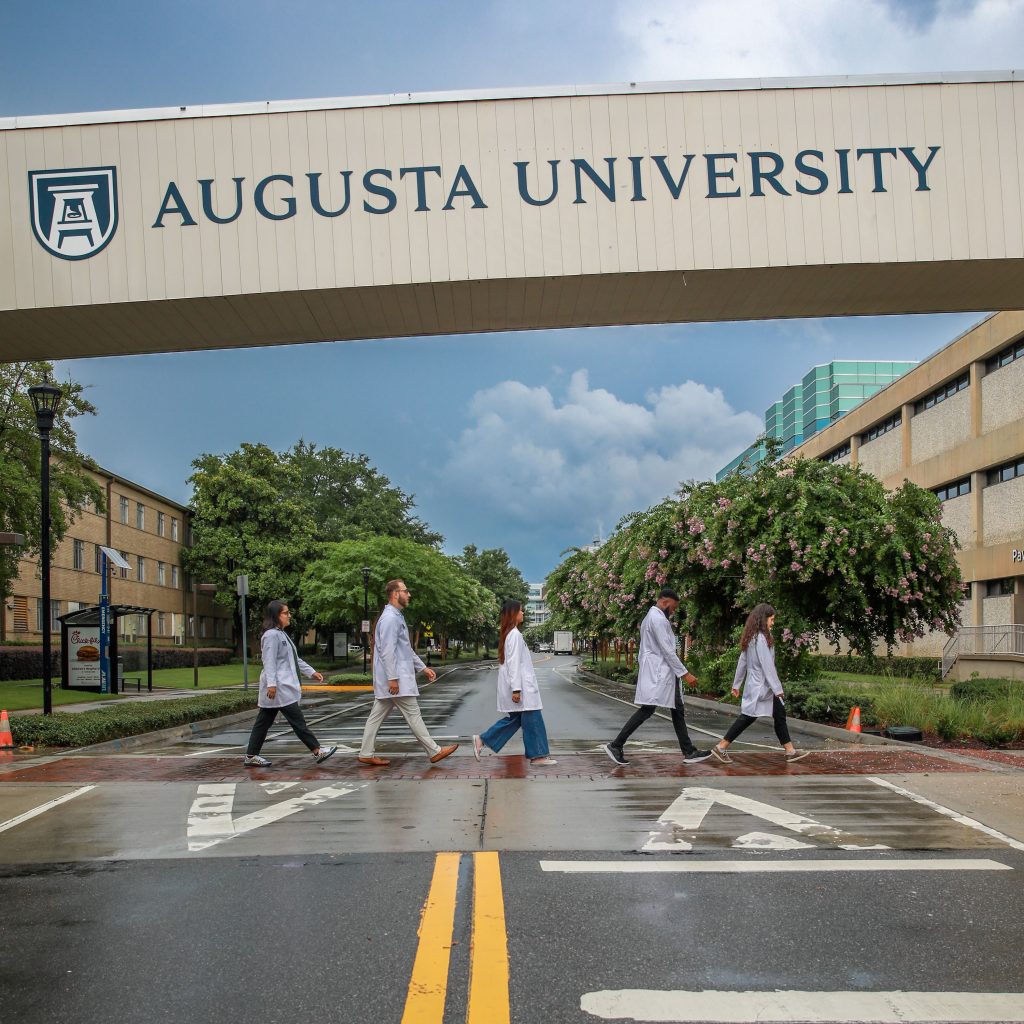
 Augusta University
Augusta University
